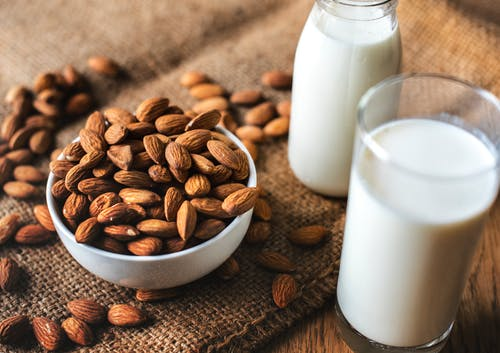Do you villainise fats? If so, you are not alone, until recently, fats in food have been demonised for the past few decades. Many people believe cutting out fats (regardless of them being good) help us get the outcome we want to achieve.
The introduction of low-fat and non-fat products emerging in supermarkets meant more and more people avoided fats out of their diets completely. However, this is one of many nutrition lies the public has been told!
Read below to find out what fats do in your diet, what counts as ‘good fats’, the difference between saturated and unsaturated fats, and how you can make sure you are getting enough healthy fats in your diet.
Healthy Fats
Our bodies need fat, specifically healthy fats. Fats are an important part of the diet, but they do not all have the same effects on health. Good fats can lower cholesterol levels, boost brain function, and make you feel full, whereas unhealthy fats can contribute to chronic disease and weight gain.
Fats can be broken down into two; saturated and unsaturated fats. Saturated fat molecules are fatty acids without double bonds; foods include ingredients like butter, coconut oil, and dairy products. Trans fat is a type of saturated fat that is often added to foods through a process called hydrogenation, which is used to increase the flavour while extending the shelf-life. Example of trans-fat includes cakes, pastries, and vegetable oil. Consuming large amounts of unhealthy fat can increase the risk of obesity and cardiovascular disease.
Conversely, unsaturated fats have at least one double bond within the chain – these can be further categorised as either monosaturated or polyunsaturated fat based on the number of bonds. Unsaturated fats can include foods like vegetable oils, nuts, seeds, and fish. Evidence shows unsaturated fatty acids help reduce inflammation, promote weight loss, and lower the risk of heart disease.
There are also fatty acids, made by the number of carbon atoms and hydrogen bonds that they contain. Fatty acids are required for providing energy, absorb vitamins and minerals, and produce hormones. There are two types of fatty acids that your body is unable to make; linolenic acid (omega-6) and alpha-linolenic (omega-3). Alpha-linolenic acid is converted in the body to its active forms of docosahexaenoic acid (DHA) and eicosapentaenoic acid (EPA). These fatty acids are found in food sources like salmon, sardines, nuts and seeds, and certain vegetables like Brussel sprouts.
Linoleic acid and alpha-linolenic acid are essential fatty acids because they need to be consumed in the diet as our body cannot create them.
Your fat intake should mostly be made up of unsaturated fats; studies have concluded that replacing just 5% of unsaturated fat calories with an equal amount of unsaturated fat resulted in a 25% reduced risk of heart disease.
Healthy fats can help absorb fat-soluble vitamins (A, D, E, K), supply energy, provide insulation to help regulate body temperature, and keep skin and hair looking healthy. Additionally, consuming good fats can contribute to weight loss! Fat is digested slower than carbohydrates and protein to promote satiety and helps bump up the flavour of foods. Studies have found that fat can suppress food intake later in the day, which could potentially enhance weight loss.
Some fats also contain anti-inflammatory properties; Omega-3 fatty acids decrease inflammation and reduce symptoms of autoimmune conditions like rheumatoid arthritis, and Crohn’s disease. Monounsaturated fatty acids help increase good cholesterol, lower triglyceride levels, and decrease the risk of heart disease.
Diverse amounts of good fats, especially omega-3 fatty acids and unsaturated fats) can enhance brain function by lowering inflammation and increasing blood flow to the brain.
Below are a list of good fats and some of their benefits:
- Avocados – rich in monounsaturated fats, which raises levels of good cholesterol while lowering the bad.
- Ghee – also known as clarified butter is loaded in fat-soluble vitamins A and E. These vitamins absorbed by your body when in a high-fat substance. They are also stored in the gastrointestinal tract, maintaining metabolism.
- Coconut Oil – made of medium-chain fatty acids, beneficial as they are easy to digest and are not readily stored by the body as fat. Also, these fatty acids improve brain function as well as memory function. Furthermore, the antioxidants in coconut oil make it an anti-inflammatory food.
- Extra-Virgin Olive Oil – many studies state olive oil is beneficial for heart health and has been linked to lower blood pressure, and reduces cholesterol levels.
- Fish – fatty fish like mackerel, salmon, and sardines are packed with omega-3 fatty acids. These fats are considered essential fatty acids because the body cannot produce them on their own and therefore rely solely on diet.
Nuts and Seeds – lower bad cholesterol to keep your heart healthy. Also rich in omega-3s, for enhancing brain health. - Eggs – an all-rounder good fat that does not raise bad cholesterol and improves heart health. Also, high consumption of eggs can reduce your risk of many conditions, including excess body fat, high blood sugar levels, and abnormal cholesterol levels. A study found that adults over 40 years old who regularly ate eggs significantly reduced their risk of metabolic syndrome.
- Dark Chocolate – considered a superfood, dark chocolate is high in fat, with antioxidants that protect our bodies from free-radicals. The flavanols are known to improve heart health by reducing blood pressure. I recommend choosing chocolate that contains at least 70% cacao – this minimises the amount of sugar and means a higher antioxidant boost.
A well-balanced diet:
A well-balanced diet should include a mix of monounsaturated and polyunsaturated fats with a small number of saturated fats, from healthy sources, like ghee. Good fats are associated with health benefits and can reduce your risk of chronic diseases to protect your heart health, shield the brain, fight depression, reduce inflammation and joint pain, for optimum health and well-being.
Want more fat-facts? Speak to one of our Nutritionist or Functional Medicine Practitioners to find out what you can do in your diet to ensure you are getting the right type and the right amount of fats!
If this resonates with you then…
Take advantage of our 15-minute sessions either with a Nutritionist or Functional Medicine Practitioner, designed to give you the support you need with your concerns and to get you started on your road to recovery. Find very quick and effective results!
At Perfect Balance Clinic, our Nutritionists or Functional Medicine Practitioners will provide you with an important assessment of your condition and discuss many routes to explore for optimum health. Our assessment covers important aspects that most practitioners seem to miss in normal sessions with their clients. This allows us to accelerate your recovery! Simply use the contact form below to provide us your details to get booked in.







